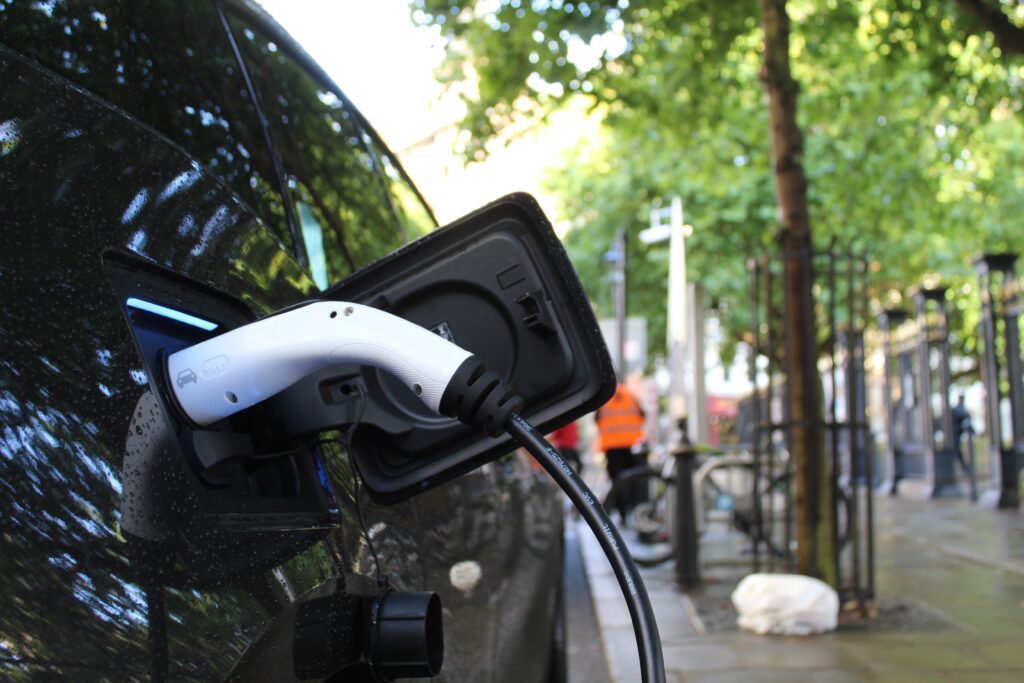The Gujarat Electric Vehicle Policy 2021 is a visionary document that outlines the state’s commitment to transitioning its transportation sector towards electric mobility. This policy is driven by the imperative need to reduce air pollution, decrease India’s oil import bill, and enhance the country’s energy security. Moreover, Gujarat’s high adoption of battery-operated two-wheelers positions it as an ideal location for industries to invest in electric vehicles (EVs). In this article, we delve into the various aspects of this policy, including its objectives, targets, incentives, and more.

Objectives
The primary objectives of the Gujarat Electric Vehicle Policy 2021 are as follows:
- Transition to Electric Mobility: The policy aims to shift the state’s transportation sector from internal combustion vehicles to electric mobility.
- Manufacturing Hub: Gujarat aspires to become a manufacturing hub for electric vehicles and ancillary equipment, promoting economic growth and employment.
- Support for Start-ups: The policy encourages the growth of start-ups and investments in the field of electric mobility and related sectors such as data analytics and information technology.
- Environmental Improvement: By reducing air pollution through the adoption of electric vehicles, the policy seeks to improve the overall quality of the environment.
Targets and Roadmap
The Gujarat Electric Vehicle Policy sets ambitious targets for the adoption of electric vehicles:
- 2-Wheelers: The policy aims to deploy 110,000 electric two-wheelers within the state.
- 3-Wheelers: It targets the deployment of 70,000 electric three-wheelers.
- 4-Wheelers: For both private and commercial use, the policy aims to deploy 20,000 electric four-wheelers.
In total, the state plans to support the deployment of the first two lakh (200,000) electric vehicles within a four-year period, commencing from July 1, 2021.
Scope and Eligibility
The policy’s scope extends to all classes of electric vehicles that have received subsidies under the Government of India’s FAME II scheme, along with charging stations that meet the Ministry of Power’s guidelines and standards.
Incentives for Early Adoption of Electric Vehicles
To incentivize the early adoption of electric vehicles, the Gujarat government offers a state subsidy over and above any subsidies available from the Central Government. The subsidy amount is determined based on the electric vehicle’s battery capacity (measured in kWh) and is subject to a maximum ex-factory price. Here are the details:
- 2-Wheelers: Rs. 10,000/- per kWh, with a maximum ex-factory price of Rs. 1.5 lakhs.
- 3-Wheelers: Rs. 10,000/- per kWh, with a maximum ex-factory price of Rs. 5 lakhs.
- 4-Wheelers: Rs. 10,000/- per kWh, with a maximum ex-factory price of Rs. 15 lakhs.
It’s important to note that beneficiaries can choose to receive subsidies under one state government scheme, and the maximum subsidy amount is limited to the vehicle’s maximum battery capacity or 40% of the ex-factory price, whichever is less.
Incentives for Charging Infrastructure
The Gujarat government promotes the development of charging infrastructure, including various business models. Commercial public EV charging stations for 2-wheelers, 3-wheelers, and 4-wheelers are eligible for a 25% capital subsidy on equipment/machinery, up to Rs. 10 lakhs per station for the first 250 stations. Additionally, all housing and commercial establishments are required to provide a ‘No Objection Certificate’ (NOC) for installing charging stations with designated parking spaces.
Incentives for Manufacturing of EVs and Components
Parties interested in setting up or upgrading facilities for manufacturing electric vehicles and components are eligible to benefit from the provisions of the Gujarat Industrial Policy-2020 and other applicable policies and government resolutions.
Convergence
The Gujarat Electric Vehicle Policy aligns with the National Electric Mobility Mission Plan (NEMMP)-2020 and the Faster Adoption and Manufacturing of (Hybrid &) Electric Vehicles in India (FAME) Scheme, both promoted by the Department of Heavy Industries, Government of India.
Nodal Departments and Agencies
Several departments and agencies play crucial roles in implementing this policy:
- Ports and Transport Department: Responsible for planning, implementation, and policy review.
- Energy and Petrochemicals Department: Manages charging stations and related subsidies.
- Gujarat Energy Research & Management Institute (GERMI): Serves as a nodal institute for research, training, incubation, and collaboration among stakeholders.
During Prime Minister Narendra Modi’s two-day visit to Gujarat and Haryana, significant developments in the electric vehicle and manufacturing sectors are set to unfold. On August 28th, in Ahmedabad district, Gujarat, the Prime Minister will lay the foundation stone for Suzuki Motor Gujarat’s groundbreaking Rs 7,300-crore electric vehicle battery manufacturing unit. This move signals a pivotal moment in the electric vehicle industry, aligning with India’s efforts to transition towards cleaner transportation.
Simultaneously, in Kharkhoda, Haryana, the Prime Minister will inaugurate the construction of a massive Rs 11,000-crore vehicle manufacturing facility. This state-of-the-art facility has the remarkable capacity to manufacture up to 10 lakh passenger vehicles annually, positioning it as one of the world’s largest passenger vehicle manufacturing hubs at a single site.
What’s notably unique about these events is that the Prime Minister will remotely lay the foundation stones from Mahatma Mandir in Gandhinagar, showcasing the country’s commitment to advancing electric mobility and bolstering the automotive manufacturing sector. These initiatives mark a significant step towards reducing carbon emissions, promoting sustainable transportation, and boosting India’s manufacturing prowess on the global stage.
In conclusion, the Gujarat Electric Vehicle Policy is not just a blueprint for the future; it’s a dynamic roadmap that’s driving change today. With ambitious targets, lucrative incentives, and a comprehensive approach, Gujarat is poised to become a leading hub for electric mobility in India. This policy is not only about reducing emissions and oil imports; it’s about creating jobs, nurturing innovation, and improving the quality of life for every citizen. As we accelerate towards an electric future, Gujarat’s commitment to sustainability, technology, and environmental stewardship shines brightly. The state is not just embracing change; it’s powering it, one electric vehicle at a time, and the journey has only just begun. Together, we’re electrifying not just our vehicles but also our aspirations for a cleaner, greener Gujarat.
The complete Electric Vehicle Policy of Gujarat is available on website of Ports and Transport Department, Gujarat
